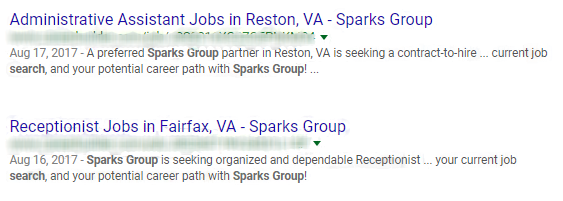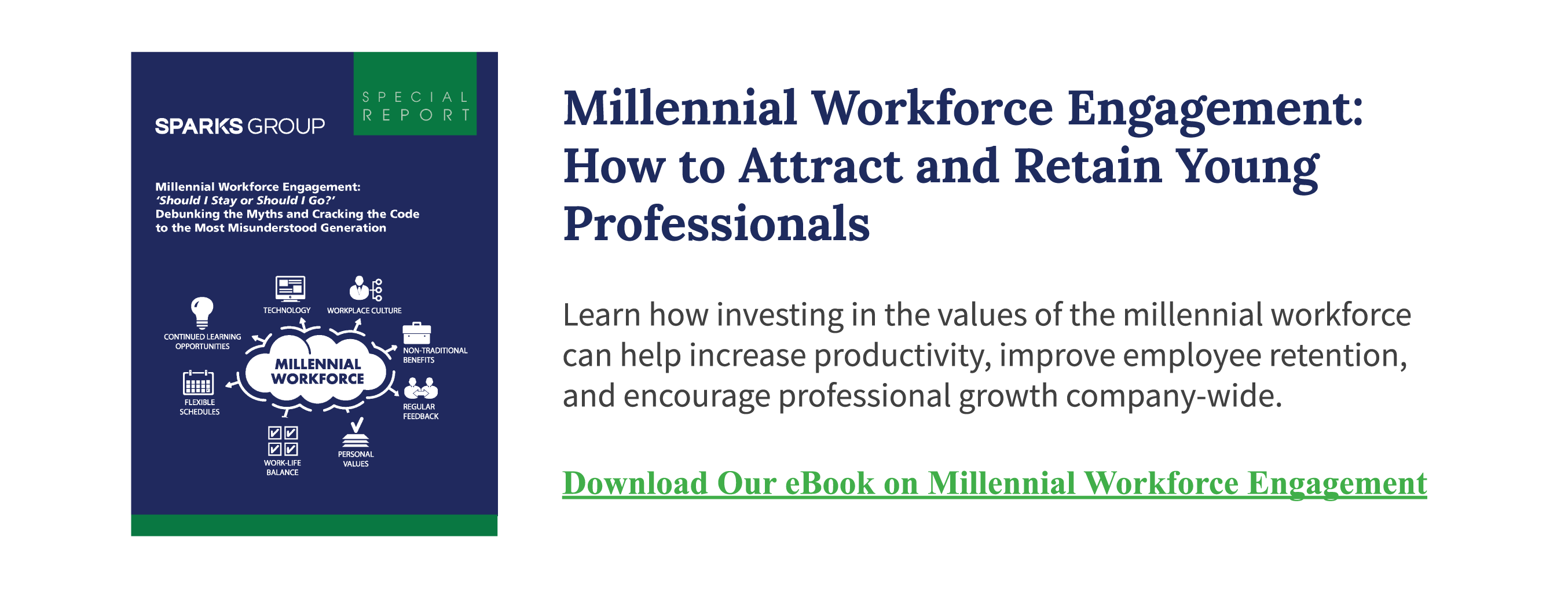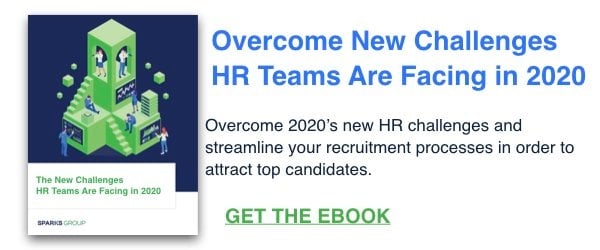
Companies today commit countless resources throughout the recruitment process to help ensure that their website ranks high in search results, and helps attract/nurture site visitors. However, unlike traditional web content (website pages, blogs, white papers, videos, etc.), search engine optimization (SEO) is generally not considered when writing content for one of their top online assets: their job board or career site.
Think about it: there are over 100 million job-related searches on Google each month. Each of these is an opportunity for companies to tell their stories—this includes everything from their workplace culture, mission, services and solutions, recent awards/accolades, and much more!
Adopt these best practices into your company's "How to Write a Great Job Posting" guide and see your job board's SEO relevancy increase.
How to Optimize Job Posts For Search Engines
1. Use Positive Keywords
While it may sound obvious, the two keywords/attributes that you should always include in your job description are:
-
The Job Title
Avoid using abbreviations (“Administrative Assistant” vs “Admin Asst.”)- Don’t add buzzwords (see below)
- Front-load the top search terms into the first 2-3 words of the title ("Marketing Assistant" vs "Washington DC Marketing Assistant")
- Limit the number of characters used. The engineering team at Glassdoor notes that positions with titles with between 12-20 characters have the highest click rate.
-
The Location
- Include both the City and State, in proper format (“Gaithersburg, MD” vs “Suburban Maryland”). Just as they would recommend a nearby restaurant or doctor, search engines are expected to increasingly rely on a device's location services for recommending jobs to a visitor.
There are a few other areas where the job title and location should be placed. If you are unsure if your posts are optimized in all of the following spots, check with your developer or designer.
- The post’s title
- The first paragraph of the post’s job description
- The post’s URL
- The post’s meta title and meta description

Additionally, enhancing your job description using relevant keywords and synonyms within the body content is an excellent way for search engines and visitors to find your post. For example, for a Web Designer position, alternate keywords and synonyms might include: UI/UX, Digital Marketing, WordPress, HTML, and/or JavaScript.
For assistance with developing a list for your job post, tools such as Keyword Explorer from Moz are commonly used by marketers to assist with content creation and planning for AdWords campaigns. Another resource to use is the search engines themselves—type your position title into a job search engine (e.g., Indeed or Google For Jobs) to see which combination of keywords rank the highest.
2. Avoid Using Recruiting Buzzwords
Using buzzwords in your titles and body content may make your position sound unique, but they don’t necessary capture a job seeker’s attention in a positive manner. In fact, they can often come across as outdated and trite. Even more importantly, they don’t mimic the search terms that the majority of job seekers enter into a search engine or job board search tool.
Compare the differences in search results for “drupal developer jobs” and “drupal rockstar jobs.” While both produce relevant results, the first one yields nearly seven times the number of results, including for authoritative domains like Google For Jobs, Drupal.org, and Indeed.
Nine Recruiting Buzzwords To Avoid:
- Black belt
- Guru
- Ninja
- Jedi
- Rockstar
- Wizard
- Evangelist
- Prophet
- Entrepreneurial
3. Optimize Job Boards For User Experience
Slow load times, unresponsive design, and/or poor rendering on mobile devices can severely affect your job posting’s SEO. Work with your developer or designer to ensure that the search and application processes on your site are seamless.
Learn more: How Staffing Agencies Streamline the Recruiting Process
4. Create High Quality Content Around Job Posts
The old line of “content is king” holds true for optimizing your job board, as well. Provide relevant content that will resonate with visitors and applicants in your industry. For instance, if your job board contains information technology jobs, including content on topics such as IT skills in high demand, retaining IT staff members, or technology trends IT professionals should know.
Other position-specific topics that typically have high search volume include job description and salary information. Consider creating content around these topics, as well for your positions.
After implementing the above practices, you should begin to see your positions rank higher in search results! For more great recruiting tips check out our client blog.







.png)